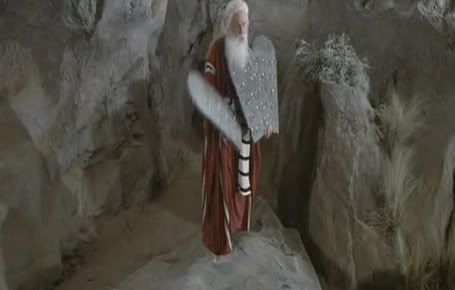Heretic wrote:You know if you reject part of the truth of God you might as well reject all of it.
So if the flood didn't happen then neither did the life and death of Christ. So there is no reason to uphold the law of god. Is that the road you really want to travel. Besides unbiased science does not exist when it comes to a scientific evaluation of the Bible or topics like origins. This is because of the commitment in science to naturalism, the doctrine that the mechanistic laws of nature are adequate to explain all phenomena.
I'm not "rejecting" the truth of anything, simply recognizing that the Bible was not written as a strictly-historical or scientific document. In fact, I'd argue that your viewpoint does far more disservice in willfully ignoring the different literary styles present in the Bible, and their various primary purposes, than my viewpoint of acknowledging them ever could. The Gospels are written in straight narrative style, for the purpose of documenting the life, death, and resurrection of Christ; this contrasts clearly with the styles used in Genesis. There's no double standard at all in holding one as a spiritual metaphor and the other as historical truth.
And of course science can take an unbiased view of a concept like the origin of the Earth or the life on it...it's just a matter of observing natural evidence and examining which conclusions drawn about it held up. Pure science doesn't particularly care which conclusion among many holds up, but only seeks to disprove conclusions which do not. The concept of explaining the world through natural processes in no way invalidates the concept of God; hell, as far as I'm concerned, the cosmic background radiation of the Big Bang might as well be God's hallmark on the universe. In the same way, the Bible can be examined in both a literary and historical context, to gain a greater understanding of the circumstances of its writing and the intent of its text.
flip wrote:Why does everyone always assume these animals were full grown? Seems to me the wisest thing to do if you had to load a boat full of animals, would be to take the yearlings and leave the full grown. Even an elephant is no larger than a full grown dog when still young. Would that have been enough room. Maybe.
Probably not. And don't forget that not only would you need room for every single animal species on the planet, you'd also need room for everything that every single animal species on the planet would need to eat...which in many cases, includes members of the others species present. It's not going to work.
I mean if you believe that Moses, through God's spirit, split the Red Sea then believing in Noah is no hard stretch. Peter walked on the water? OK. That too. Lazurus raised from the dead and Jesus also. Christians believe in a God where nothing is impossible. The story of Egypt and Moses is a part of the Jews historical record in which they can trace back their lineage to one man (Abraham), then further back to the patriarchs and all the way to Adam. If you believe that God created everything that exists just by his words and his will, then these other stories seem just as possible. Don't try to make logic out of spiritual things just to save face. We serve an AWESOME GOD.
I simply don't see how applying reason to one's personal faith counts as saving face; if anything, thinking critically about what we believe in helps us grow stronger in that same faith. The thing is, you simply can't look at the physical universe simply through the context of spirituality...that's putting the cart before the horse. Instead, by looking at spirituality through the context of the universe around us, we can come to a greater understanding of how God's creation unfolded, and what our place in it is. Rational thought need not be divorced from faith, and scientific research and religious belief can peacefully coexist, dealing with different aspects of the same questions.






